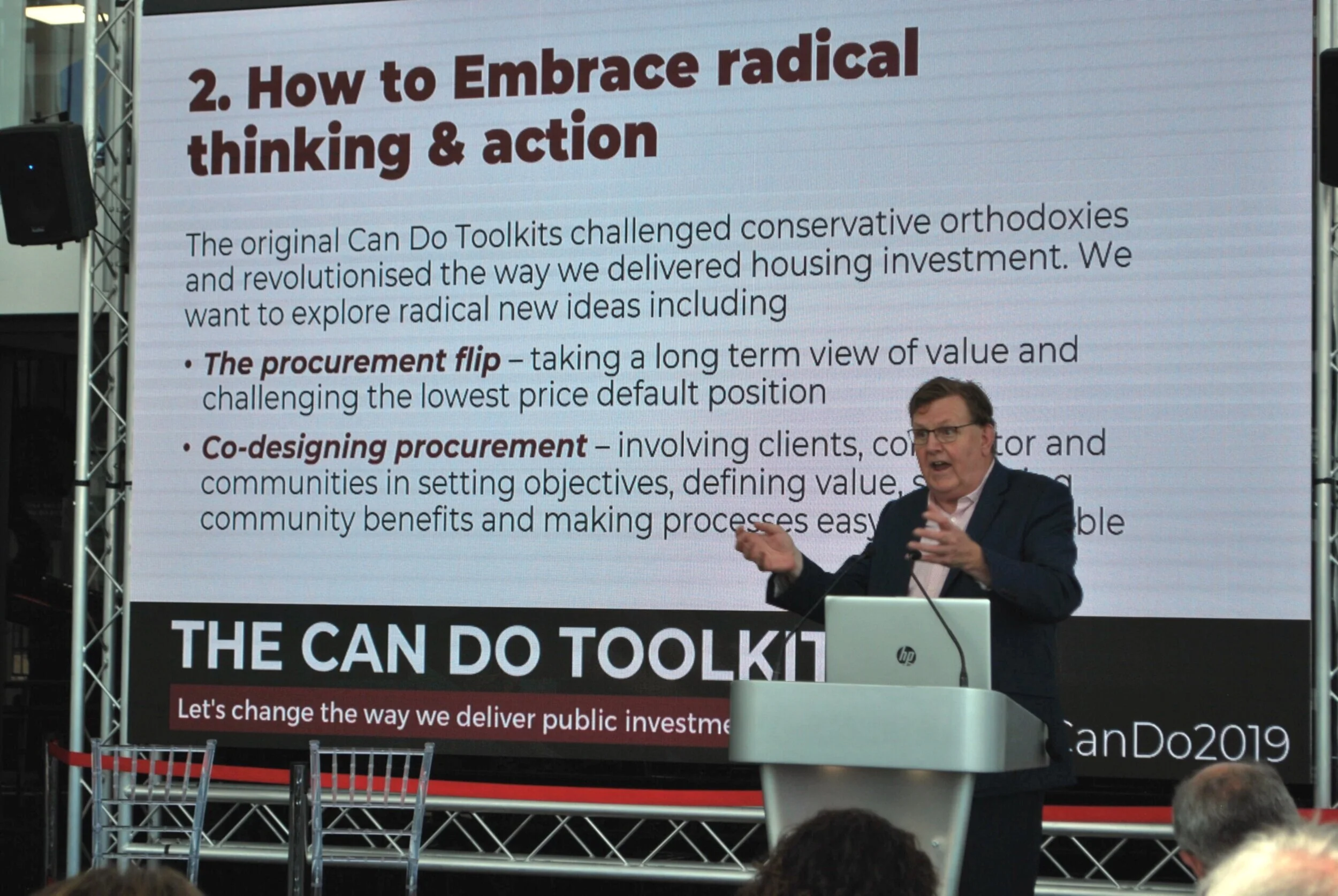Housing: the stand-out, go-to, can-do sector
‘The social housing sector in Wales has seen some success in using public sector procurement to support the local economy and build community wealth, but replicating this success more widely appears difficult.’
These are the opening words of Russell George AM in the National Assembly Economy, Infrastructure and Skills Committee report into Procurement and the Foundational Economy published last week (6th February 2020). The committee chair is a conservative and the report has unanimous cross-party support. The focus was on the extent to which local procurement can build wealth in Welsh communities. This is our turf and we’ve been on it for a long time.
I’ve given evidence to assembly committees before. Housing doesn’t always get a good press and politicians have reflected this in their approach. Past sessions have sometimes been terse affairs, confrontational even. Steve Cranston of United Welsh, Ady Johnson of Cartrefi Conwy and I were aware of this when we went before the committee in October last year.
But this was different. The questions and comments of committee members came from a position both of support for the foundational economy and recognition that housing was way out in front in making it happen. Positive references to the sector are peppered throughout the 53 page report.
Steve Cranston is quoted as saying that uniquely as a sector ‘everything we do is foundational in nature’. The Can Do Toolkits were mentioned a number of times. Ady Johnson linked this to making sure ‘that everyone, really, is carrying out this best practice at all times.’
In my evidence I picked up on the potential of the Wellbeing of Future Generations Act to provide a way of measuring foundational economy outcomes:
‘There’s a framework there where, if we get smart measures, you should be able to, across Government, across departments, clearly understand what the impact of the work we’re doing in the foundational economy is.’
We each highlighted some exciting possibilities are opening up.
One of the key messages of our Can Do Declaration – a work in progress that is being co-produced with participants in our 10th anniversary event last July – is highlighted in the report. I made the point that:
‘We should adopt the ‘procurement flip’ of taking a long-term view of value and challenging the lowest price default position.’
We could apply this for example in the drive for innovation in housing across the Cardiff Capital Region, the ground-breaking work housing associations and councils are doing through the foundational economy challenge fund and – perhaps most promising of all – delivering decarbonisation by stimulating local economies. In the words of Steve Cranston
‘Reducing carbon emissions by 95 per cent by 2050 – that’s potentially a 30-year pipeline of work on our homes and our communities. If we get that right, then I think we’ve got a massive opportunity…to really make the foundational economy model work.’
So we had a very good press this time around. And housing, the stand-out, go-to, can-do sector, is stepping up again.
This article first appeared on the Welsh Housing Quarterly website on 15 February 2020.
